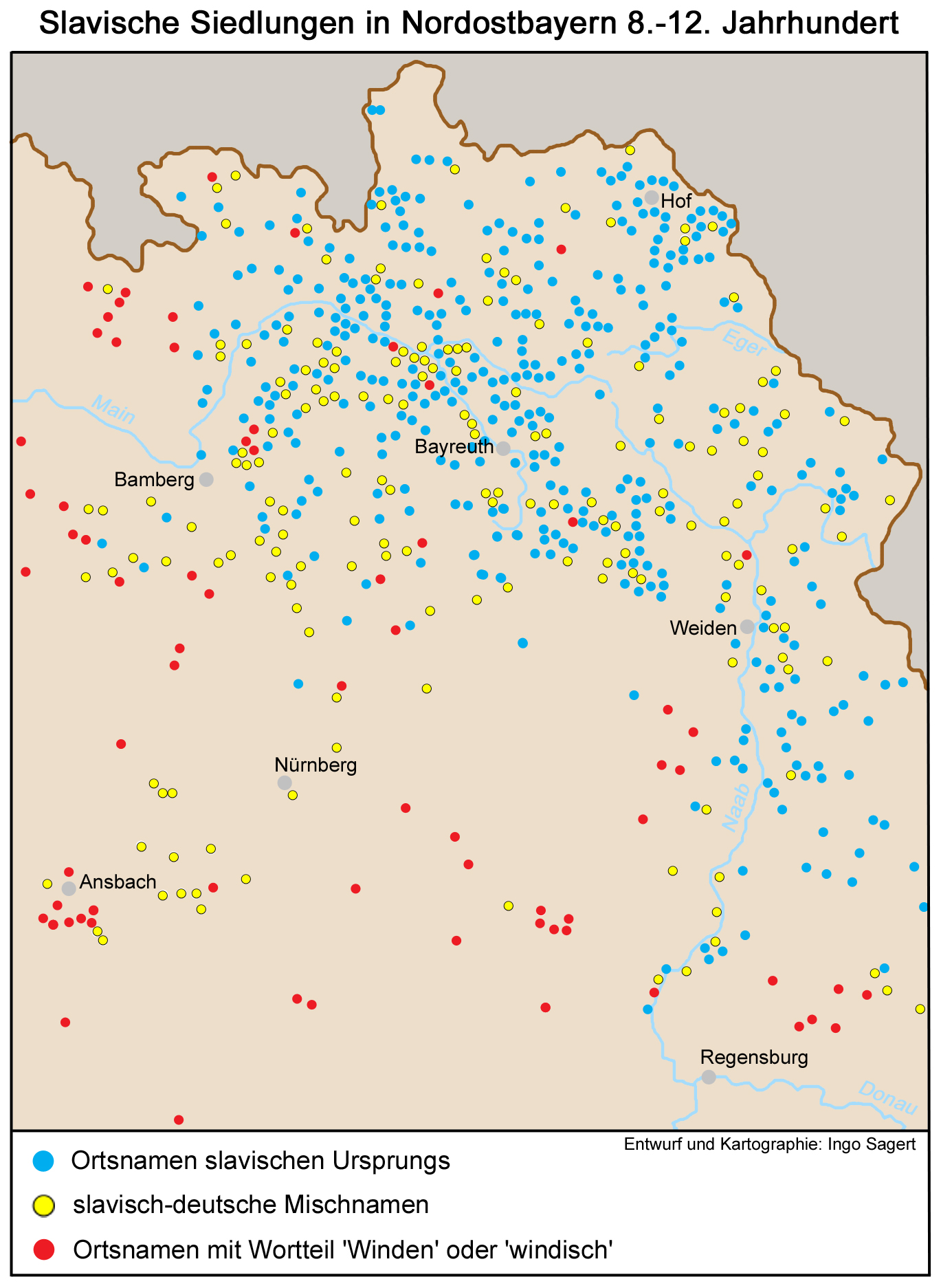Bavaria Slavica on:
[Wikipedia]
[Google]
[Amazon]
 Bavaria Slavica is a historiographic term used to denote the areas populated by West Slavic people (
Bavaria Slavica is a historiographic term used to denote the areas populated by West Slavic people (
{{Germany-hist-stub Medieval Bavaria West Slavic history Germany in the Early Middle Ages History of Franconia
 Bavaria Slavica is a historiographic term used to denote the areas populated by West Slavic people (
Bavaria Slavica is a historiographic term used to denote the areas populated by West Slavic people (Wends
Wends ( ang, Winedas ; non, Vindar; german: Wenden , ; da, vendere; sv, vender; pl, Wendowie, cz, Wendové) is a historical name for Slavs living near Germanic settlement areas. It refers not to a homogeneous people, but to various peopl ...
) between the 6th and the 12th centuries in northeastern Bavaria
Bavaria ( ; ), officially the Free State of Bavaria (german: Freistaat Bayern, link=no ), is a state in the south-east of Germany. With an area of , Bavaria is the largest German state by land area, comprising roughly a fifth of the total lan ...
. The Wends settled in Bavaria in several waves between the 6th and the 9th centuries and then in the 10th and the 11th centuries. The settlement of loyal West Slavic Wends and other minor tribes was favoured under Frankish Emperor Charlemagne
Charlemagne ( , ) or Charles the Great ( la, Carolus Magnus; german: Karl der Große; 2 April 747 – 28 January 814), a member of the Carolingian dynasty, was King of the Franks from 768, King of the Lombards from 774, and the first Holy ...
. Later, the East Frankish Empire also settled largely-Christianized
Christianization ( or Christianisation) is to make Christian; to imbue with Christian principles; to become Christian. It can apply to the conversion of an individual, a practice, a place or a whole society. It began in the Roman Empire, conti ...
Wends in regions that were rural or unpopulated or threatened by uprisings. After the migration had ended, they were quickly assimilated by the local Franks
The Franks ( la, Franci or ) were a group of Germanic peoples whose name was first mentioned in 3rd-century Roman sources, and associated with tribes between the Lower Rhine and the Ems River, on the edge of the Roman Empire.H. Schutz: Tools, ...
, who had always continued to form the majority and by the Baiuvarii
The Baiuvarii or Bavarians (german: Bajuwaren) were a Germanic people. The Baiuvarii had settled modern-day Bavaria (which is named after them), Austria, and South Tyrol by the 6th century AD, and are considered the ancestors of modern-day Bava ...
.
See also
*Germania Slavica
''Germania Slavica'' is a historiographic term used since the 1950s to denote the landscape of the medieval language border (roughly east of the Elbe-Saale line) zone between Germans and Slavs in Central Europe on the one hand and a 20th-century s ...
External links
{{Germany-hist-stub Medieval Bavaria West Slavic history Germany in the Early Middle Ages History of Franconia